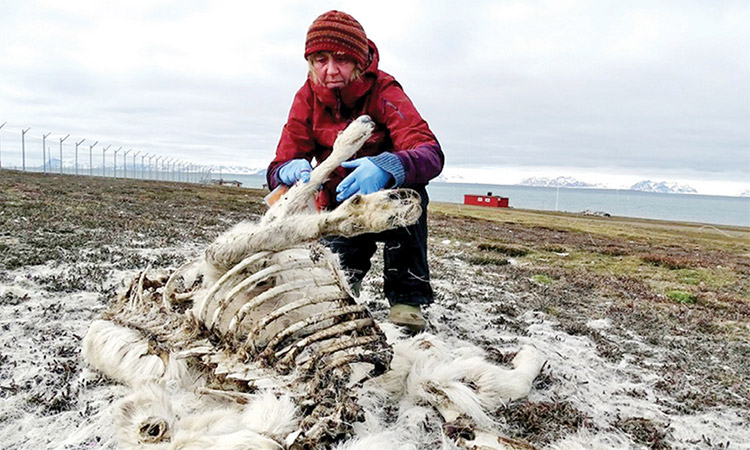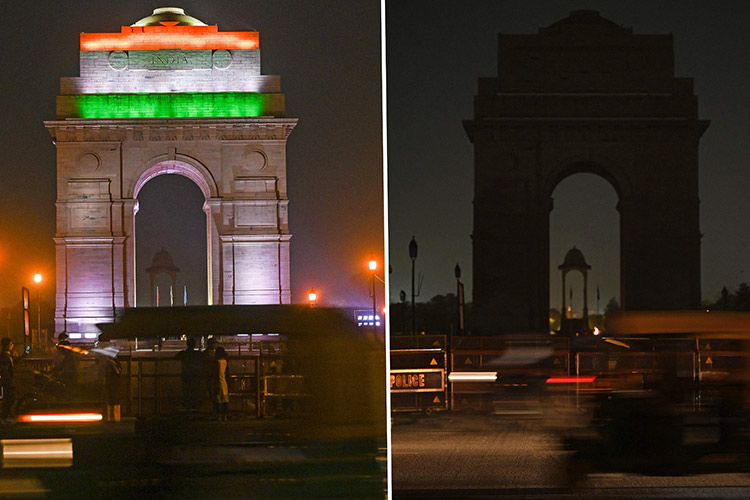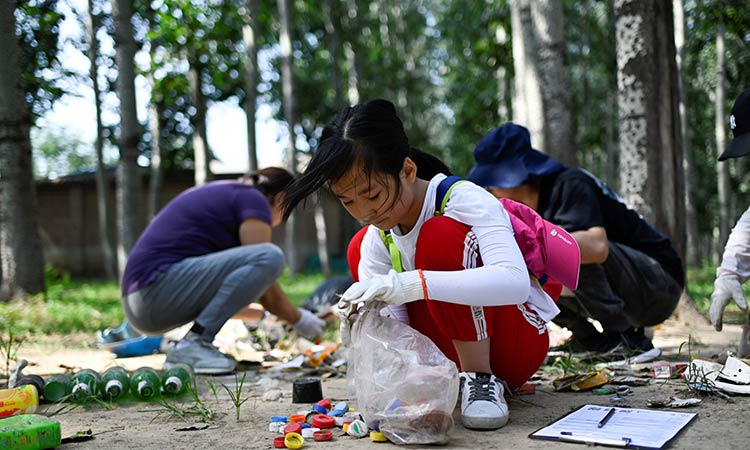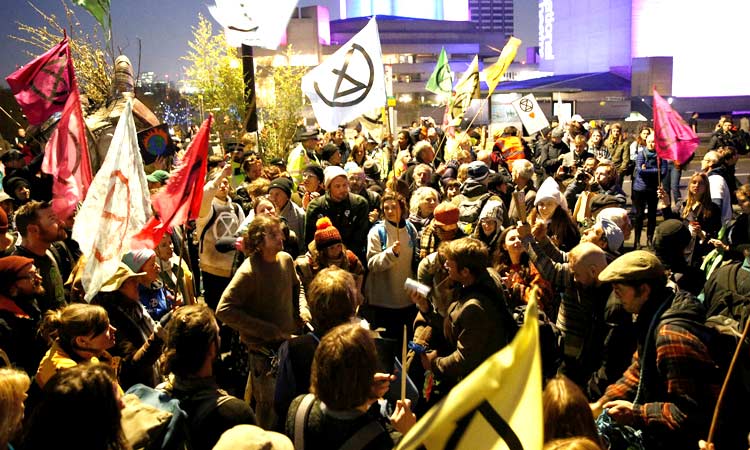We can’t ignore link between climate crisis and deportations

Terrestrial ecologist Ashild Onvik Pedersen examines a reindeer cadaver in the Arctic archipelago Svalbard. AFP
May MacKeith, The Independent
The action of groups like the Stansted 15 have shown how effective solidarity with front line groups can change lives. Many of the people due to be forced onto the charter deportation flight that I stopped with 14 others in March 2017 were hours away from being sent to places where their lives were in danger. In response, the government used terror-related legislation to lay down a marker, forcing us to endure a gruelling legal process.
The support for our cause was overwhelming. Among those who spoke up to demand justice for us were migrant friends who had endured far worse than we had, and had been arbitrarily imprisoned without time limit in detention centres as part of the government’s hostile environment policy. But too often, the climate movement, including groups like Reclaim the Power with which I also organise, has failed to draw the links between the climate crisis and colonialism, between climate justice and migrant justice. This has to change.
This weekend we have tried to start doing just that. Six hundred people have gathered for Reclaim the Power’s direct action occupation camp with twin targets: energy company Drax’s climate-wrecking plans to build the UK’s largest ever gas-fired power station and the UK government’s hostile environment for migrants.
Today we’re joining migrant groups including the All African Women’s Group, many of whom have experienced detention and staged resistance to it both inside detention and from the outside.
We are taking action to put the Home Office on notice: end the brutal, racist hostile environment or expect further action in the months to come. And this morning, activists have blocked the entrance to a coach company involved in deportations to send a clear message that companies profiting from deportations must be stopped.
This is uncertain ground for a largely white, mainly middle-class climate group like Reclaim the Power but it’s absolutely necessary that we step up our solidarity and learn from groups like Black Lives Matter UK, the anti-raids network, Lesbians and Gays Support the Migrants and the Stansted 15, whose action meant that four of the people due to be deported on the charter deportation flight we stopped in March 2017 have been given the right to stay. I shared an emotional panel at the camp with one of those individuals who would not have been here otherwise. Seven more are still fighting for their rights.
As a network focused on the climate crisis, Reclaim the Power is joining front line communities who have been resisting racist policies for years, and seeing where we can learn from this resistance, how we can act in solidarity and whether we can apply the skills that have helped see off the fracking industry in the UK. Most of all, if we are serious about climate justice, we have to see migrant justice as inextricably linked.
Boris Johnson’s right wing cabinet of free trade Brexiteers shows that now more than ever, for those in power, freedom of movement applies to goods, not people.
Corporations move freely while people die at our borders, as we were reminded yet again with last week’s tragedy in the Mediterranean, where an estimated 150 people lost their lives.
In the UK, the government’s “hostile environment” policy, which new home secretary Priti Patel wants to intensify, has extended the border into the heart of our communities, taking border checks into our schools, hospitals and workplaces.
It’s a move that forces our migrant friends and neighbours into destitution as they try to survive on the meagre amount of £37.75 per week provided through asylum support. It snatches them from their homes, locks them up and sends them to countries where their lives are in danger. To be silent on fortress Europe and UK borders is to be complicit in its violence.
We’re organising against the hostile environment today because its existence dehumanises us all, but also because it’s inherently linked to climate breakdown. Both have the same root: a system based on structural racism and historic and ongoing colonialism, which benefits a small elite at the expense of the lives of black and brown people.
We can have no climate justice without migrant justice. To me, it seems as though both our broken energy system and the hostile environment work only for the profit of big companies. Drax receives over £2m a day in public subsidies to burn millions of trees and drive us further towards climate breakdown, according to its 2017 annual report, while Serco’s contract to run Yarl’s Wood detention centre is worth £70m.
We need a renewables-based energy system that works for people, and an immigration system that allows friends and neighbours to live their lives in our communities with dignity and respect. We need to organise against the destructive, divisive politics our new right-wing government represents, working alongside migrant communities who have been effectively organising for decades.
With today’s protests we’ve taken a small step towards that end, but it is the beginning of a long process. By the end of October, the home secretary will have be in post for three months, and Brexit will have brought the status of migrants back into focus.
If nothing has changed by then, the government and companies behind the hostile environment should expect further action from climate groups, as part of a growing movement of people determined to stand by our migrant friends and neighbours.







